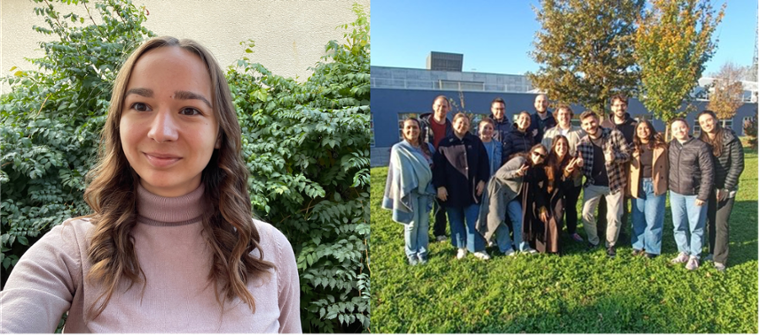In today's digital age, misinformation spreads rapidly, often outpacing the truth. Recognising this pressing issue, EUTOPIA organised the third Innovation Challenges for Students which was hosted by Universitat Pompeu Fabra (UPF) in Barcelona from May 13 to 15, 2025. The event, themed "Unmasking the Truth: Tackling Fake News Together," brought together 80 students from our 10 European universities to develop innovative solutions addressing the challenges posed by fake news.
The challenge focused on four key areas:
- Fake News & Fact-Checking: “How might we encourage citizens to identify and combat disinformation, integrating fact-checking into their daily lives?” proposed by Lucía Abadías López from Verificat, the only fact-checking platform in Catalonia recognised by the International Fact-Checking Network (IFCN) and by the European Fact-Checking Standards Network (EFCSN).
- Fake News & Mental Health: “How might we combat disinformation on mental health among young people?” proposed by Meritxell Vilanova from Fundació Joia, a non-profit organisation with + 40 years expertise in Barcelona working to support mental health and emotional well-being.
- Fake News & Deepfakes: “How might we foster critical awareness around the creation, use, and dissemination of deepfakes in society?” by Àlex Valverde Valencia from +RAIN Film Festival, the first European festival of Film and AI.
- Fake News & Democratic Fragility: “How might we protect democratic values by addressing disinformation through the use of open data?” by Mar Escarrabill from Canòdrom, a municipal center that brings digital culture, open technologies and participatory democracy closer to the nearby territory through an open cultural programme, an applied research space and a communitarian Radio.
Before the start of the hackathon, Karma Peiró, researcher and lecturer with subjects related to Ethics and Artificial intelligence, Algorithmic, Accountability Reporting and Open data, delivered a powerful and inspirational speech that invited students to reflect on how fake news are created and disseminated.
Following the keynote, participants were divided into interdisciplinary teams, each tasked with developing innovative solutions to one of the four key challenges. The 3-day intensive days featured workshops, discussions, and collaborative projects, fostering an environment where they could deepen their understanding of misinformation's impact and work toward practical solutions. Given the complexity of the issues, four expert mentors guided the 16 teams throughout the entire process, from initial challenge exploration to concept development, prototyping, and experimentation planning.
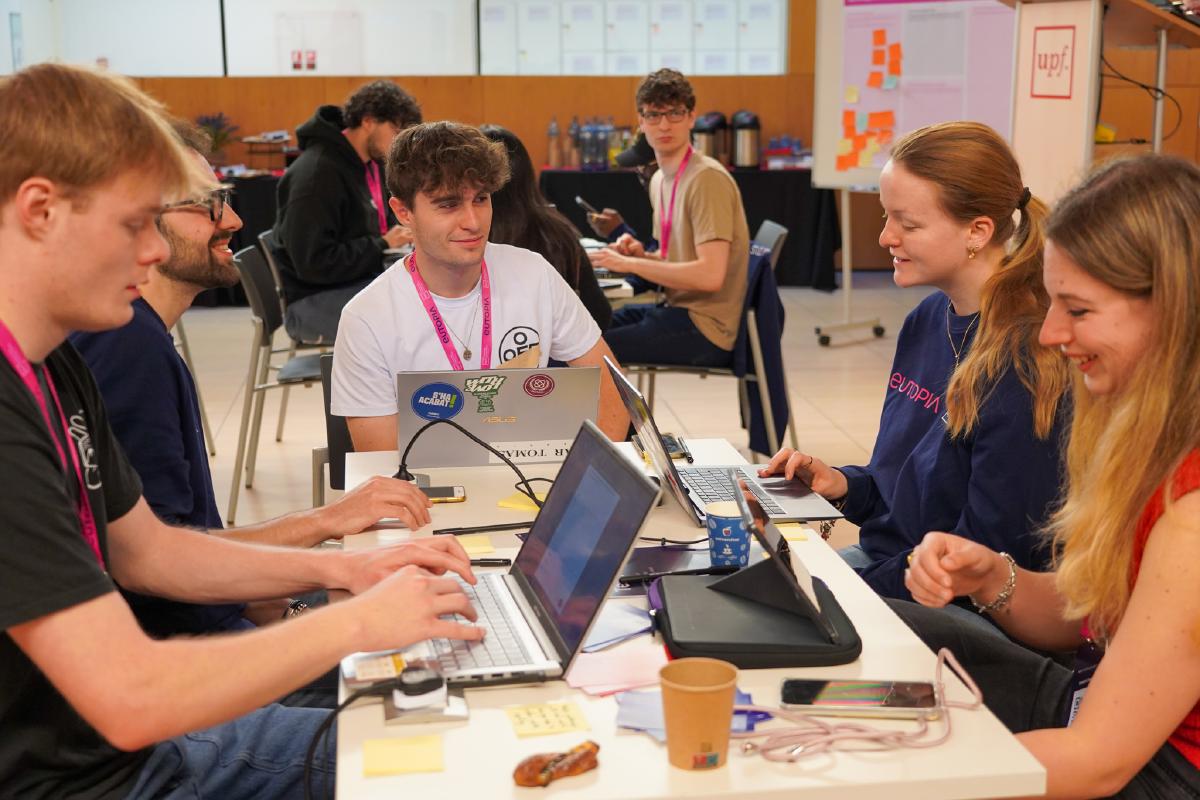
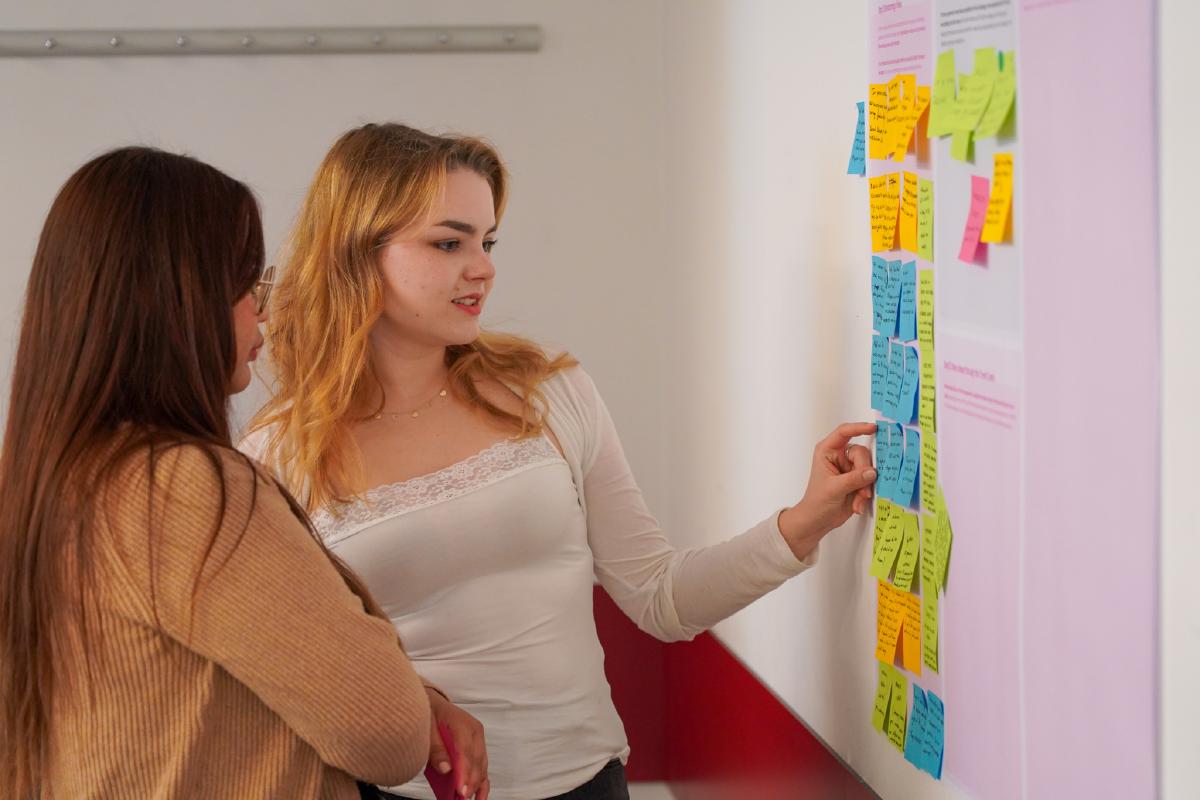
The culmination of the Innovation Challenges was the pitch presentations, where each team presented their final project in front of a live audience and a distinguished jury composed of academics, journalists, fact-checking professionals, and innovation experts. With just 3 minutes to pitch and 3 minutes for jury Q&A, teams had to communicate their ideas with precision, clarity, and confidence, mirroring the fast-paced reality of today’s information ecosystem.
For instance, one team developed "Ctrl+Truth," a tool designed to empower investigative journalists to uncover patterns of disinformation using the Open Data BCN database. Rather than providing just raw datasets, Ctrl+Truth reimagined open data as a cognitive tool: accessible, efficient, and interpretable. By turning open datasets into actionable insights, the team empowered journalists to uncover manipulation campaigns and misinformation trends. This prototype was awarded first place in its category for its innovative approach to enhancing transparency and accountability in media.
Another team tackled the critical link between mental health and disinformation. Their project, MIST, was an AI-powered platform aimed at debunking harmful mental health advice on platforms like TikTok. By training a language model on peer-reviewed scientific literature, MIST generates short, credible video scripts, which are then turned into engaging AI-generated videos by certified professionals. These videos serve as direct responses to misleading content, providing users with trustworthy alternatives, and a credibility badge to amplify expert voices. This solution underscored the importance of combating pseudoscience with science-based digital tools.
Another group focused on deepfakes with a proposed solution emphasising media transparency, algorithmic accountability, and user education, calling for clearer labeling, fact-checking partnerships, and toolkits to help users identify manipulated content. They proposed that platforms must no longer hide behind algorithms. Instead, users should be empowered, creators held accountable, and truth given tools to keep pace with falsehood.
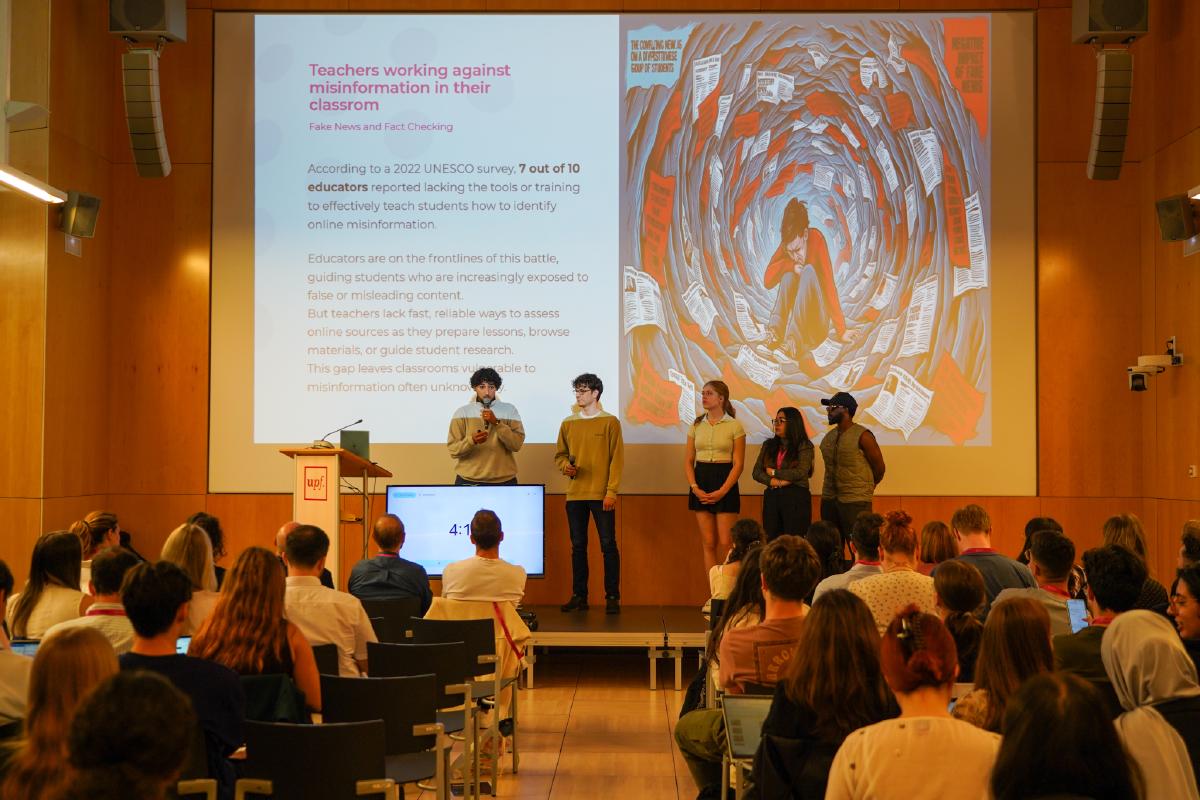
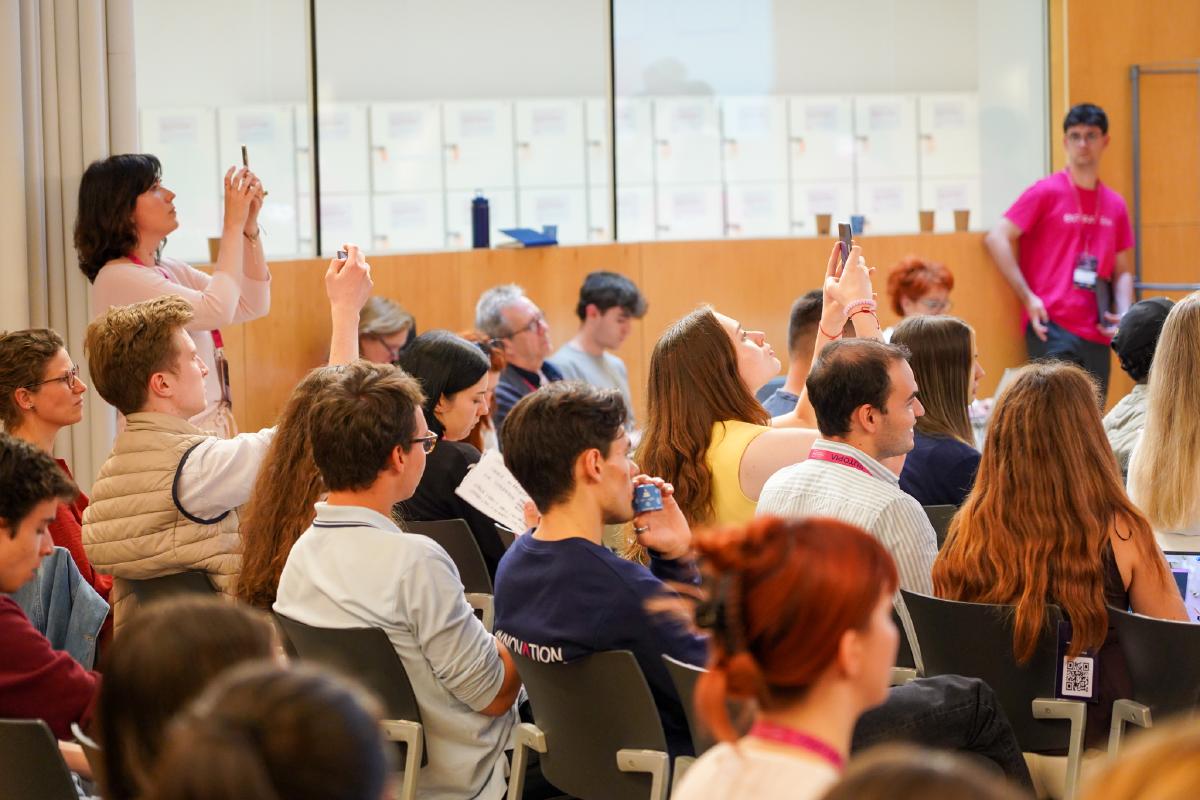
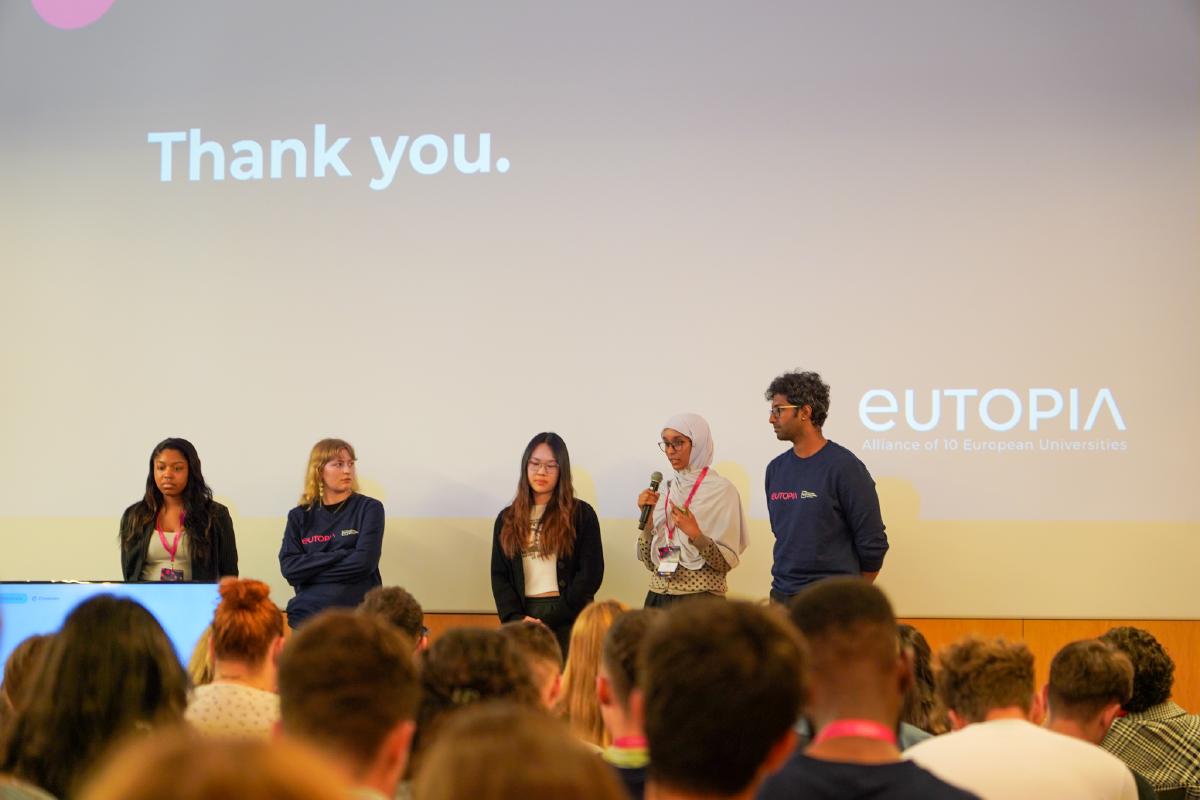
Beyond the rigorous academic schedule, participants immersed themselves in Catalan culture through a unique social activity: building human towers, known as "castellers", sometimes several stories high. This traditional practice symbolises teamwork, trust, and resilience; values that resonate with the collaborative spirit of the Innovation Challenge. Engaging in this activity provided students with a deeper appreciation of local traditions and the importance of unity in overcoming challenges.
This edition of the EUTOPIA Innovation Challenges was not just a competition: it was a launchpad for future change-makers. As participants return to their home universities, they take with them new tools, new networks, and a renewed sense of purpose. They’ve shown that tackling misinformation is not only a technological or regulatory challenge but a human one.
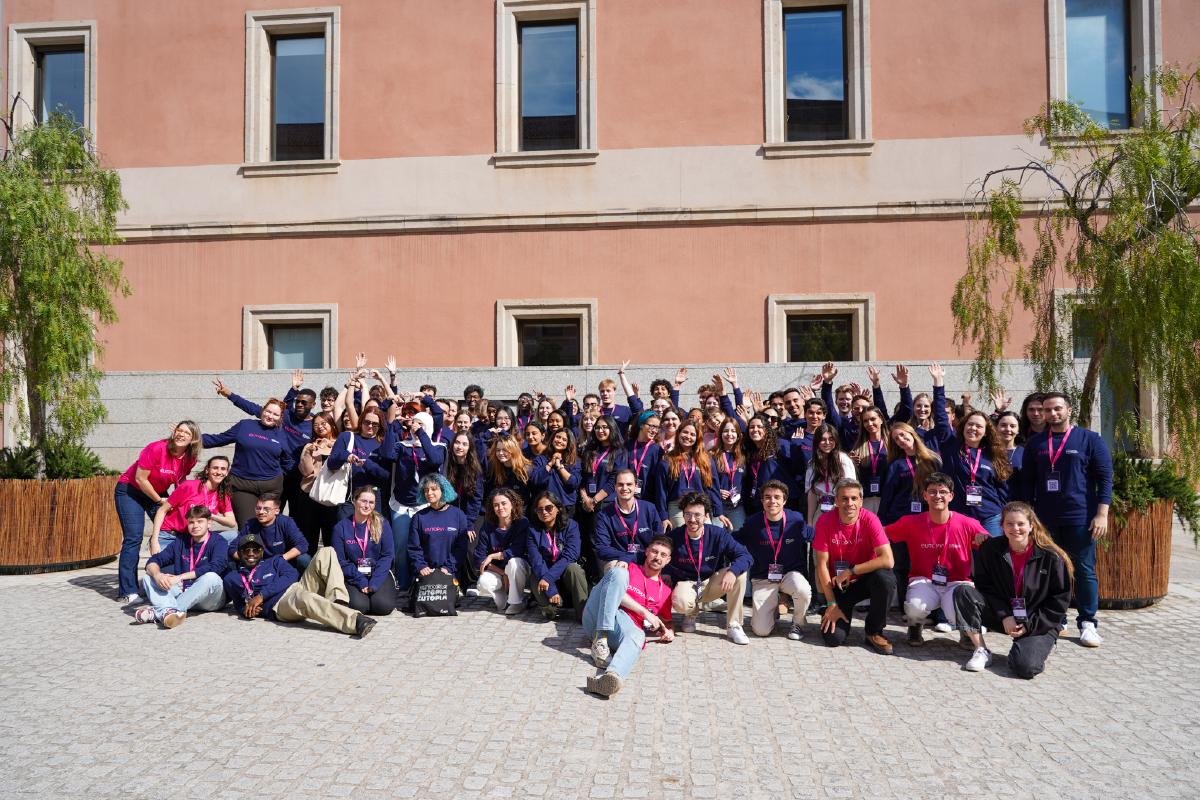
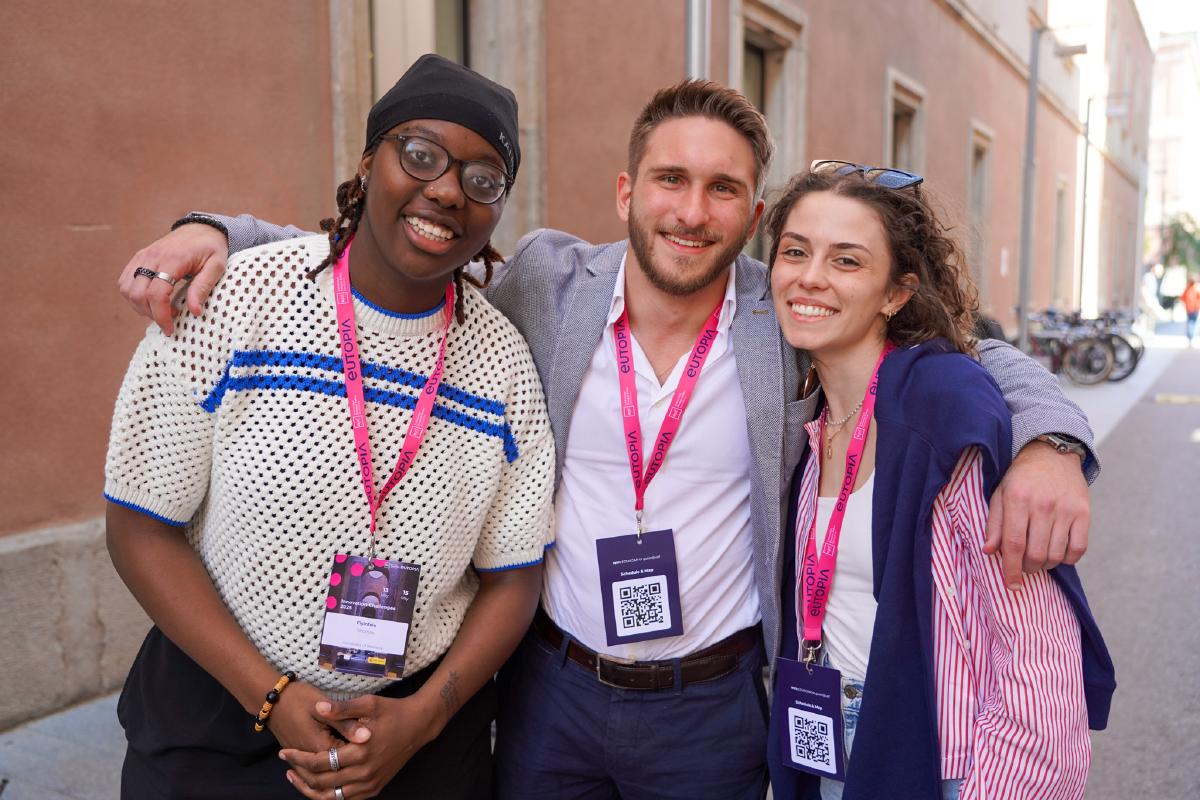 Text and photographs: Maud Simon
Text and photographs: Maud Simon
